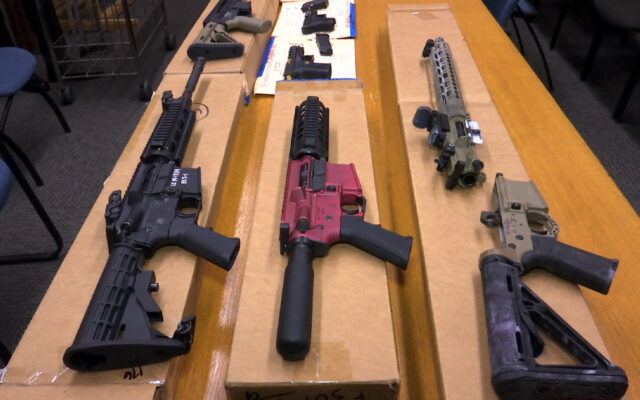Illinois State Police Continues to Strengthen Firearms Safety Efforts

Updates to Clear and Present Danger Rule and Model Policy for Firearms Restraining Order
Illinois State Police have updated rules to allow broader use of clear and present danger reports for people applying for a Firearm Owners Identification Card. Monday, ISP announced the rule was approved by a legislative oversight committee. Before the updated rule, reports had to be “impending” or “imminent,” an issue that arose with the alleged Highland Park shooter getting a FOID card despite local police filing clear and present danger reports in 2019.
Press Release below:
The Illinois State Police (ISP) is increasing public safety by providing updates and clarity to two firearm ownership tools aimed at keeping firearms out of the hands of those who pose a significant threat to themselves or to others.
Today, ISP adopted updates approved by the Joint Committee on Administrative Rules (JCAR) to the administrative rule governing Clear and Present Danger reporting under the Firearm Owners Identification Card (FOID) Act. The updated rule, which allows for a broader use of Clear and Present Danger reports, was proposed in the wake of the July 4, 2022 shooting in Highland Park. Clear and Present Danger reporting is a mechanism upon which ISP may revoke or deny a FOID for an individual who poses a serious threat.
“When determining whether to issue or revoke a FOID card, it is imperative ISP has as much information and evidence as possible,” said ISP Director Brendan F. Kelly. “Updates to this administrative rule will strengthen ISP’s ability to keep firearms out of the hands of dangerous individuals.”
Prior to the Clear and Present Danger Emergency filing in July 2022, administrative rules required a subject’s clear and present danger had to be “impending,” or “imminent.” The statutory definition in the FOID Act, more broadly defines Clear and Present Danger as simply requiring “physical or verbal behavior, such as violent, suicidal, or assaultive threats, actions, or other behavior.” The changes to the approved rule makes the definition of “clear and present danger” more consistent with what is written in the FOID Act and is not constrained by the immediacy of a situation. The broader definition can better inform current or future decisions on FOID card revocations or denials based on risks to public safety.
The rule outlines that Clear and Present Danger reports submitted to ISP from a certified medical professional, school administrator, or law enforcement agency that don’t meet the definition of Clear and Present Danger under the FOID Act will be retained for five years, similar to other mental health reports submitted by mental health practitioners and facilities. The rule change also allows ISP to maintain and use a Clear and Present Danger report in instances when the individual did not have a FOID card or was not actively seeking a card at the time the Clear and Present Danger report was submitted. The rule will be included in the upcoming Illinois Register.
Another tool to increase public safety is the Firearms Restraining order (FRO), which allows law enforcement officers and family or household members to obtain a court order temporarily restricting an individual who is determined to be at risk of harming themselves or others from securing or maintaining access to firearms, ammunition, or firearm parts while respecting the individual’s constitutional rights and providing a judicial procedure for challenging the Order.
The Commission on Implementing the Firearms Restraining Order Act (Commission) recently approved a model policy to provide an overall framework law enforcement can follow to secure and execute a Firearms Restraining Order (FRO).
“It is important law enforcement agencies know how to safely and legally execute a Firearms Restraining Order,” said Director Kelly. “The model policy created by the Commission contains procedures that allow law enforcement agencies to comply with all firearms laws while respecting individuals’ constitutional and due process rights.”
The policy addresses procedures for law enforcement in the following areas among others:
- petitioning for a FRO (either emergency or six-month)
- serving a FRO issued by the court
- securing firearms, ammunition, and firearm parts surrendered by subject of the FRO
- executing a FRO search warrant
- returning firearms, ammunition, or firearm parts
- attending court hearings
- training






